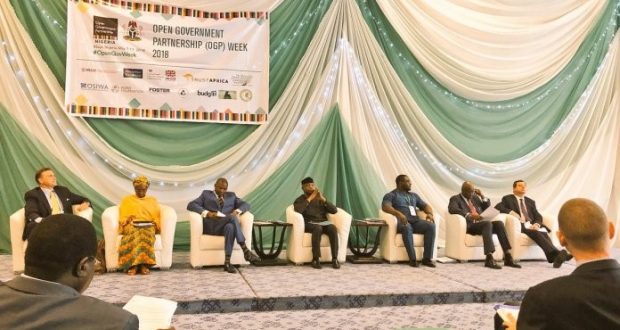Nigeria recovers N7.8bn, $378m through whistle-blowers

Nigeria has recovered about N7.8billion, $378million and £27,800 through the Whistle-blower’s Policy launched by the President Muhammadu Buhari administration in December 2016.
Vice President Yemi Osinbajo stated this on Monday at the opening of the Open Government Partnership, OGP, week holding at the Nigerian Airforce Headquarters, Abuja, where he represented President Muhammadu Buhari.
He said the Presidential Initiative on Continuous Audit, PICA, which oversees the Whistle-blower’s Policy in the Ministry of Finance, has also helped the government save over N200bn by eliminating ghost workers.
The Vice President said PICA was established “to clean up the payroll and pension system across all the ministries, departments and agencies.”
He said government had included recovered assets in the country’s annual budget since 2017 and invested them in the development of infrastructure as well as in the Social Investment Programme.
“All funds forfeited to the federal government are being included in our yearly budget proposals, for appropriation by the National Assembly,” he stated.
According to him, an executive bill has been sent to the National Assembly for the purpose of enacting a more comprehensive legislation on proceeds of crime.
Osinbajo said the Nigerian government was leveraging technology in a way it had not been done before, to underpin President Buhari’s commitment to transparent and accountable governance.
He said: “Nigeria’s experience has shown that technology and innovation tools as well as social media platforms are changing the ways in which citizens engage with government, and empowering citizens and non-state actors to take a more active role in holding government to account.”
Professor Osinbajo said measures taken by the government to fight corruption since the inception of the administration in May 2015, included the implementation of the Single Treasury Account, TSA, “that existed mainly as an idea, without the appetite for serious implementation” and the establishment of the Presidential Advisory Committee Against Corruption, PACAC.
Other measures, according to him, were a National Open Contracting Platform (NOCOPO) developed by the Bureau for Public Procurement. The Infrastructure Concession and Regulatory Commission (ICRC) launched its Public Private Partnerships (PPP) Contracts Disclosure Portal in September 2017 to ensure the timely disclosure of contract information from project initiation through to implementation; and the Citizens’ I-Monitor Portal developed by the Budget office through the open Budget Survey Index.







No comments